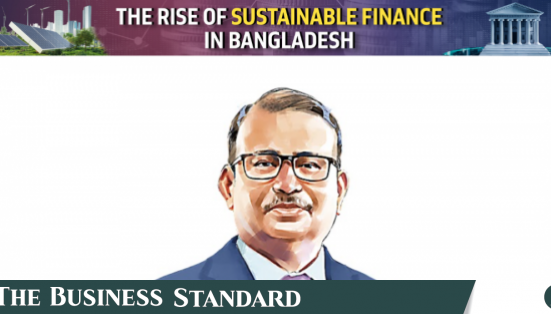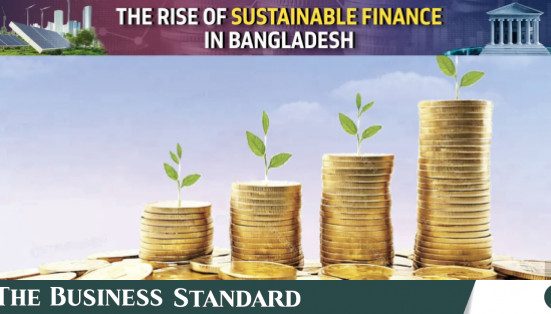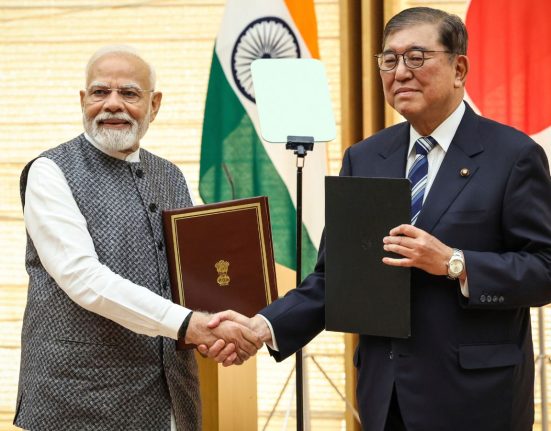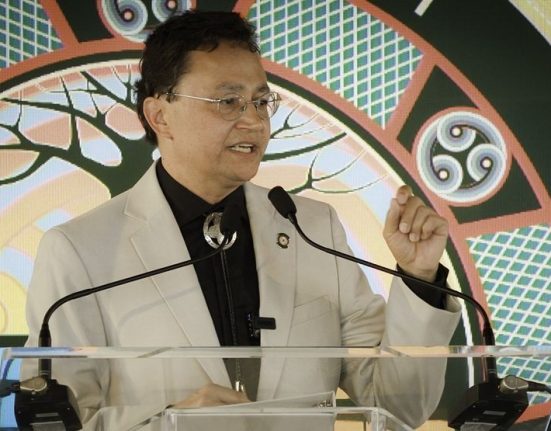Sustainable finance is emerging as a defining theme for the banking industry in Bangladesh, a country that is acutely vulnerable to the impacts of climate change. Recognising this urgency, Bangladesh Bank introduced the sustainability rating system in 2020. According to the central bank’s Sustainability Finance Report 2024, ten private commercial banks and two financial institutions have been rated as sustainable financial institutions. The evaluation is based on five key indicators: the Sustainable Finance Index, CSR activities, green project financing, the Core Banking Sustainability Index, and Banking Services Coverage.
“Sustainable finance is quality finance where the process duly honours the environment and society. It is an important aspect of the banking sector itself—for the banks’ own health—by keeping the rate of non-performing loans low, maintaining depositors’ confidence, and supporting SMEs, the true drivers of enterprise in the country,” explains Prof Dr Mainul Islam, former professor of economics at Chittagong University.
He elaborates that sustainable finance includes financing key sectors such as agriculture, ensuring inclusive financing for CMSMEs and low-income groups, promoting green financing, maintaining transparency, and engaging in philanthropic activities. In this regard, he stresses the need for greater participation from banks, pointing out that sustainable finance in Bangladesh has so far not developed a negative track record.
The central bank’s Quarterly Review Report on Sustainable Finance shows encouraging growth. During January–March 2025, the total contribution of Green Finance by banks and financial institutions stood at BDT 8,763.47 crore, an increase of BDT 117.78 crore from the October–December 2024 towards environmentally and socially desirable goals. It leads all stakeholders and aims to create an inclusive and greener economic and environmental system,” states Ahsan Zaman Chowdhury, Managing Director & CEO of Trust Bank PLC.
Banks are also transforming their operations internally, moving towards energy-saving practices such as efficient power management, waste reduction, and the integration of renewable energy.
United Commercial Bank (UCB) has taken a lead role. “UCB has established 50 Sustainable Finance Help Desks strategically located across the country. These are managed by a dedicated Sustainable Finance Unit that assists clients in navigating green finance options, refinancing facilities, and structuring environmentally responsible projects. This proactive outreach embeds sustainability into both our corporate and retail lending portfolios,” notes Mohammad Mamdudur Rashid, Managing Director & CEO of UCB.
Prime Bank has focused on digitalisation. “Through initiatives like paperless transactions, e-statements, mobile apps, card-based services, and agent banking, we are actively reducing paper consumption and energy use—making banking not only smarter but also greener,” says Md Ziaur Rahman, DMD & CRO of Prime Bank.
Mutual Trust Bank (MTB) has pioneered sectoral green financing. “We currently offer 94 green products across 14 sectors, including green buildings, effluent treatment plants (ETPs), renewable energy, and energy-efficient machinery. Beyond corporates, we also cater to retail clients with innovative solutions,” shares Syed Mahbubur Rahman, Managing Director & CEO of MTB.
BRAC Bank, too, has made notable progress. “Our sustainable finance portfolio is 82%, with 20% dedicated to green finance, reflecting strong alignment with the regulator’s priorities,” says Tareq Refat Ullah Khan, Managing Director & CEO (Current Charge) of BRAC Bank PLC.
“Within our operations, we have converted all offices to LED lighting, installed solar panels in selected branches and ATMs, and implemented a Green Office Guideline to ensure energy and resource efficiency. Our Sustainability Report reflects these efforts and includes detailed GHG emission calculations, aligned with global standards such as PCAF, GRI, and ISSB,” adds Tareq.
Pubali Bank is prioritising CMSMEs. “Last year, 88% of our sustainable finance investments went to CMSMEs. We are consciously shrinking corporate loans to better support real entrepreneurship,” notes Md Mohammad Ali, Managing Director & CEO of Pubali Bank.
City Bank has made significant contributions to renewable energy. “We financed the country’s largest wind power plant in Cox’s Bazar with 60 MW capacity, and provided concessional loans to a Jashore-based waste management company. City Bank also operates 38 solar-powered branches and has introduced rainwater harvesting at multiple sites,” shares Mashrur Arefin, CEO of City Bank.
Sustainable and green banking remains a top priority in Dutch-Bangla Bank’s decision-making process, said Abul Kashem Md Shirin, Managing Director and CEO of the bank. He noted that the bank places particular emphasis on CMSMEs and women entrepreneurs in its investment planning, while steadily increasing allocations to green and sustainable finance with a strong focus on energy efficiency and renewable energy.
To better understand its environmental impact, Dutch-Bangla Bank has engaged external experts to measure its carbon footprint. Shirin explained that the bank is addressing Scope 1 and Scope 2 emissions by promoting the use of energy-saving lighting and equipment across its operations. On Scope 3 emissions, he added, the bank is encouraging clients to invest in renewable energy and energy-efficient technologies to reduce reliance on fossil-fuel-based machinery.
Trust Bank has expanded rural initiatives. “We financed 2,934 biogas plants and established ‘Trust Bank Solar Village’ in Jhenaidah. By the end of 2024, our sustainable finance outstanding stood at BDT 148,454.80 million,” notes Ahsan Zaman Chowdhury.
Shahjalal Islami Bank (SJIB) is implementing strict compliance measures. “We do not finance vehicles over five years old or brickfields, and we are committed to financing renewable energy, waste management, green buildings, and energy-efficient machinery,” says Mosleh Uddin Ahmed, Managing Director of SJIB.
Women and SMEs are critical to sustainability. Eastern Bank has disbursed over BDT 200 crore in renewable energy, energy efficiency, and waste management ventures, alongside training and advisory support for SMEs and women entrepreneurs. Dhaka Bank offers concessional loans to start-ups, while Shahjalal Islami Bank provides collateral-free investment up to BDT 25 lakh for women entrepreneurs at reduced profit rates.
Despite these advances, challenges remain. Many businesses lack the knowledge and capacity to adopt green initiatives, while the high upfront cost of green technologies deters investment. “The biggest challenge is creating awareness among businesses and customers about sustainable finance. Knowledge gaps, lack of skilled manpower, and higher initial costs remain barriers,” observes Tareq Refat Ullah Khan of BRAC Bank.
Data gaps in financed emissions and sector performance, shortages of capacity in risk and technology appraisal, and a thin pipeline of bankable green projects (particularly in renewable energy and resilient infrastructure) remain hurdles, adds Mashrur Arefin, CEO of City Bank.
Regulatory backing is crucial for expanding sustainable finance in Bangladesh, says Abul Kashem Md Shirin, Managing Director and CEO of Dutch Bangla Bank (DBBL). He notes that Bangladesh Bank is steering the financial sector towards adopting sustainable finance principles in lending decisions. The central bank’s Sustainable Finance Department sets policy guidelines for banks and financial institutions, which he describes as a milestone in embedding sustainability within the banking system. Shirin adds that allocating more funds under Bangladesh Bank’s refinance schemes will further accelerate the growth of green and sustainable finance.
A K M Shahnawaj, Managing Director (Current Charge) of Dhaka Bank, says fiscal incentives such as tax breaks for green investments, import duty exemptions on eco-friendly technologies, and targeted grants or subsidies play a crucial role in catalysing private sector participation in sustainable finance.
Sustainable banking in Bangladesh is still in its formative stage, yet the direction is clear. With competition among banks fuelling innovation and commitment, the country is moving steadily towards a greener financial system. The more banks embrace sustainability, the stronger the foundation for an inclusive, environmentally responsible future.


 For all latest news, follow The Daily Star’s Google News channel.
For all latest news, follow The Daily Star’s Google News channel. 




